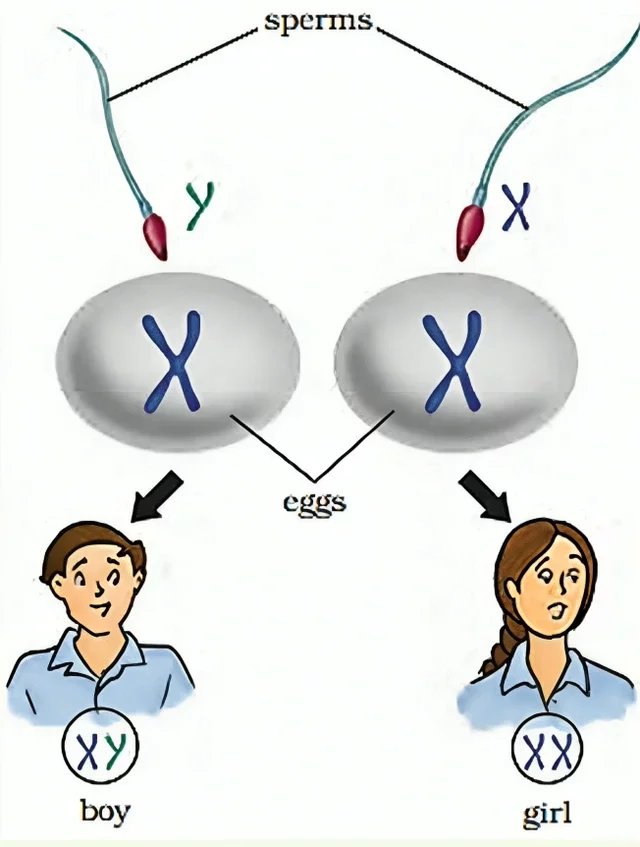Have you ever wondered what dictates whether a tiny life blossoms into a boy or a girl?

Many Kenyan parents are usually anxious to know the gender of their baby and with the advancement in technology, a baby's gender can be known even before birth.
It's not uncommon for soon-to-be parents to harbour secret hopes or dreams about their baby's gender.
Some parents express subtle preferences, while others may openly share their desires for a specific gender.
In this article, we'll look at the roles both parents play in determining the gender of a child.

Human reproduction is a complex yet amazing process. It all starts with chromosomes, the tiny cell structures that carry our genes.
Humans have 23 pairs of chromosomes, and one of these pairs determines our gender - these are called the sex chromosomes, known as X and Y.
A man's sperm typically has one X and one Y chromosome (XY), while a woman's eggs have two X chromosomes (XX).
Women always contribute an X chromosome. Men, however, can contribute either an X or a Y chromosome.
Fertilization happens when a sperm cell and an egg cell unite. The gender of the baby is determined at this exact moment.
If the sperm carrying an X chromosome fertilizes the egg, the baby will be female (XX). If a Y-carrying sperm fertilizes the egg, the baby will be male (XY).

For this reason, it is accurate to say that men play a determining role in the gender of a baby. Since the egg from the female always contributes an X chromosome, it is the sperm from the male that ultimately determines the baby's gender.
This also debunks some cultural myths in Kenya where some men will blame their partners if the baby's gender doesn't turn out like they had hoped.
Sometimes, variations can occur with sex chromosomes leading to genetic conditions.
You might wonder if it's more likely to have a boy or a girl. Statistically, it's nearly a 50/50 chance, similar to flipping a coin. However, this process is entirely random and left to chance.

There are many myths about predicting or influencing a baby's gender. From eating certain foods to timing conception, these beliefs lack scientific backing. Gender determination is a genetic process, not influenced by such external factors.
Here are some of the most common gender prediction myths:
Food Cravings
One popular belief is that if a pregnant woman craves sweets, she is likely to have a girl. On the other hand, cravings for salty or sour foods are said to indicate a boy. There's no scientific evidence to support this claim.
Morning Sickness Severity
It's often said that severe morning sickness is a sign of having a girl. However, morning sickness can vary widely among pregnancies, regardless of the baby's gender.
Baby's Heart Rate
Another common myth is that a faster heart rate (over 140 beats per minute) indicates a girl, while a slower heart rate suggests a boy. Scientific studies have shown that there's no significant difference in the heart rates of male and female fetuses.
Shape and Height of the Belly
Some people believe that carrying the baby high indicates a girl, while carrying low means a boy. The shape and height of the pregnant belly are influenced by the mother's body type, muscle strength, and the baby's position.
Hair Texture and Skin Condition
Some believe that dull, limp hair and skin issues during pregnancy indicate a girl, due to the baby "stealing" the mother's beauty. In reality, changes in hair texture and skin condition are due to hormonal changes during pregnancy.
















Comments